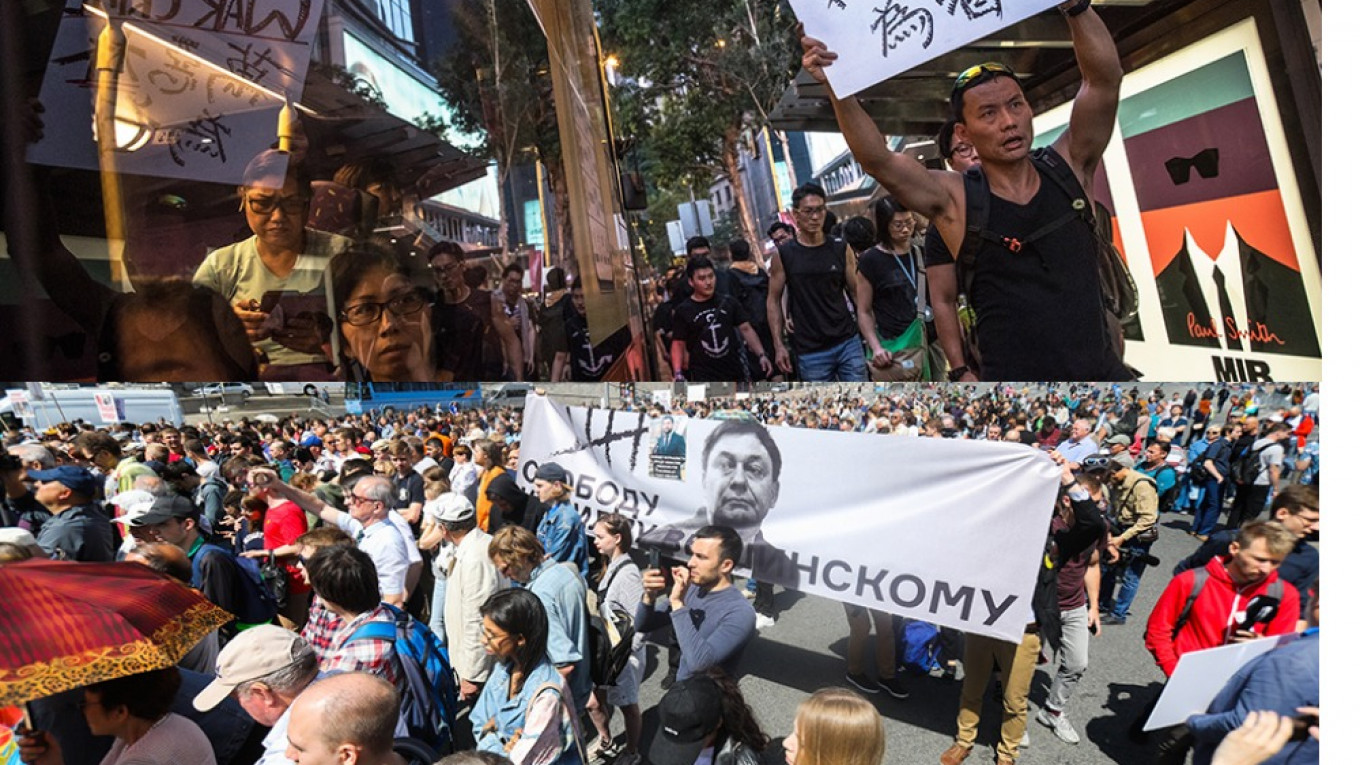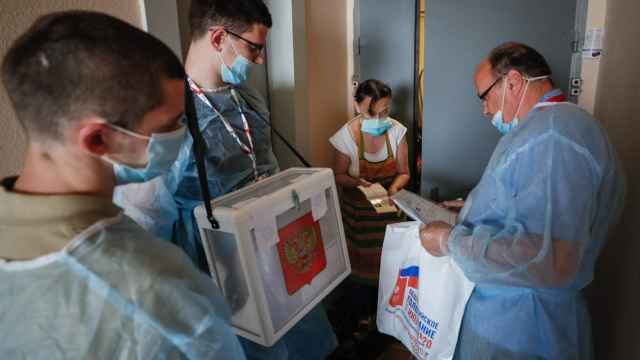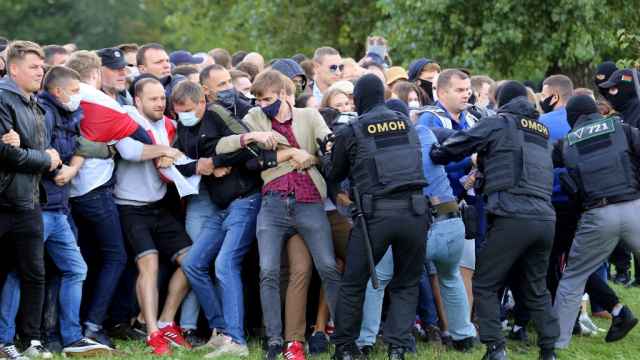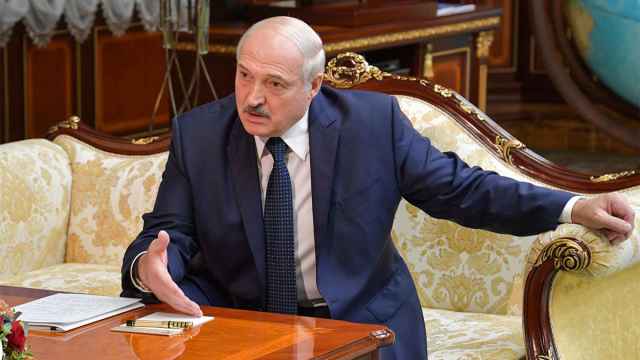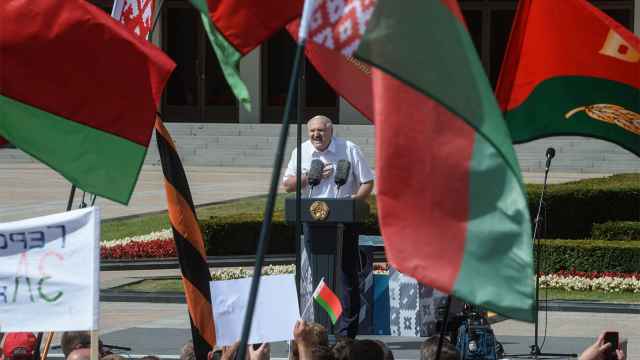The apparent victory of Hong Kong protesters and a mini-thaw taking place in Russia are interesting departures from the usual practice of two regimes known to have no reverse gear. Could they have decided to learn a technique one student of authoritarianism has dubbed “contained escalation”?
The communist government of mainland China has been whittling away at Hong Kong’s British-style liberties for years, and protests were routinely ignored. The so-called Umbrella Revolution of 2014 — opinionated a series of protests against a plan to have candidates for the role of Hong Kong’s chief executive screened by the mainland — resulted in the preservation of an even more restrictive electoral system. And last April, nine of the movement’s leaders were convicted of “conspiring” and “inciting” to cause a public nuisance. Even in relatively liberal Hong Kong, the regime that crushed the Tiananmen Square protests didn’t step back in the face of popular indignation.
This time it’s different — the (much more numerous) protesters have forced pro-Beijing Chief Executive Carrie Lam to shelve a bill that would allow extradition from Hong Kong to the mainland, which would have dealt a major blow to the special economic region’s judicial independence. And Lam has promised no arrests, too.
Meanwhile in Russia, personal interventions by President Vladimir Putin — after numerically weak but noisy protests — led to the release of investigative journalist Ivan Golunov, who had been arrested on what seemed like trumped-up drug charges, and to the cancellation of a planto replace a public park with a cathedral in Yekaterinburg. On Monday, the 20-day sentence of opposition activist Leonid Volkov, who had been convicted twice for the same “offense” of calling on people to attend an unsanctioned rally, was unexpectedly and unusually commuted to eight days, and Volkov walked free. More concessions are expected on Thursday, when Putin is scheduled to hold his marathon annual call-in show with voters. A retreat on plans to build a massive landfill in the northern Russian region of Arkhangelsk, which have led to violent clashes between locals and police, could be on the cards.
The differences between the Chinese and Russian situations are obvious: In Hong Kong, the protests and the concession have been much bigger. But the similarity of the authoritarian regimes’ retreating when they didn’t really have to — both have ample capacity for repression, and they could have stood their ground — is more intriguing.
Surely both Putin and Chinese President Xi Jinping know that liberalization can be a slippery slope. In a 2017 paper, political scientist Daniel Treisman from the University of California at Los Angeles, who had studied all cases of democratization between 1800 and 2015, named it among the most common fatal mistakes dictators make. They initiated limited reform thinking it would help stabilize the regime, but then lost control. Putin saw close up how it works: Soviet President Mikhail Gorbachev’s attempt to loosen the screws helped lead to the end of the communist regime.
Other mistakes Treisman mentioned included overestimating popular support and “overrepressing.” Any regime depends to some extent on popular support, and it’s extremely difficult to get the balance of repression and concession just right. Escalation and propaganda usually do the job for authoritarian rulers — until they’re about to fall. That’s why there are so few successful examples of illiberal regimes’ juggling escalation and concession. These examples exist, however.
In 2014, Dana Moss from the University off California, Irvine, described the case of Jordan, the Middle Eastern kingdom that managed to avoid a revolution during the Arab Spring. The regime — which had used the same array of repressive tactics as Russia and China against pro-democracy activists — started compromising with those who appeared to make manageable demands, while unleashing harsh reprisals against those who uncompromisingly demanded a revolution. Moss wrote:
The Arab Spring (at least temporarily) reduced some routine forms of repression and compelled the regime to accommodate public protest so long as it did not invoke the familiar methods or refrains of neighboring revolution — e.g., mass sit-ins and slogans calling for the fall of the regime. While increases in harsh repression have temporarily sparked calls for the fall of the regime on the street since 2011, as long as the regime prioritizes social stability over retaining power at all costs — the latter approach exemplified by the autocratic regimes of Libya’s Muammar Gaddafi and Syria’s Bashar al-Assad – harsher repression will be used sparingly.
This dynamic of “contained escalation,” as Moss called it, is likely what we’re seeing in both Russia and China. Putin clearly feels he needs to tread carefully because he no longer enjoys 80 percent approval ratings and because Russians appear to be tired of foreign military adventures as the same old problems fester at home. Xi, for his part, doesn’t need domestic instability during a ruthless trade war with the U.S.
Both appear to be willing to concede some non-critical ground. Even without the extradition law, Hong Kong remains firmly under Beijing’s control, and if protesters give any indication they’re working to end that, there probably will be a forceful response. In Russia, neither Golunov’s arrest nor the construction of the church was a matter of principle for Putin, and intervention only helped him win popularity points; but when activists continued protesting against unfair arrests after Golunov’s release, about 500 people were detained in Moscow.
The Russian and the Chinese regimes have plenty of time and resources to build their versions of the Jordanian model, in which the activists end up realizing they can get the rulers’ favorable attention if they make small demands and show willingness to negotiate, while demanding more will get them beaten up and thrown behind bars. The regimes will learn as they go; activists should as well.
This article was originally published by Bloomberg.
A Message from The Moscow Times:
Dear readers,
We are facing unprecedented challenges. Russia's Prosecutor General's Office has designated The Moscow Times as an "undesirable" organization, criminalizing our work and putting our staff at risk of prosecution. This follows our earlier unjust labeling as a "foreign agent."
These actions are direct attempts to silence independent journalism in Russia. The authorities claim our work "discredits the decisions of the Russian leadership." We see things differently: we strive to provide accurate, unbiased reporting on Russia.
We, the journalists of The Moscow Times, refuse to be silenced. But to continue our work, we need your help.
Your support, no matter how small, makes a world of difference. If you can, please support us monthly starting from just $2. It's quick to set up, and every contribution makes a significant impact.
By supporting The Moscow Times, you're defending open, independent journalism in the face of repression. Thank you for standing with us.
Remind me later.



